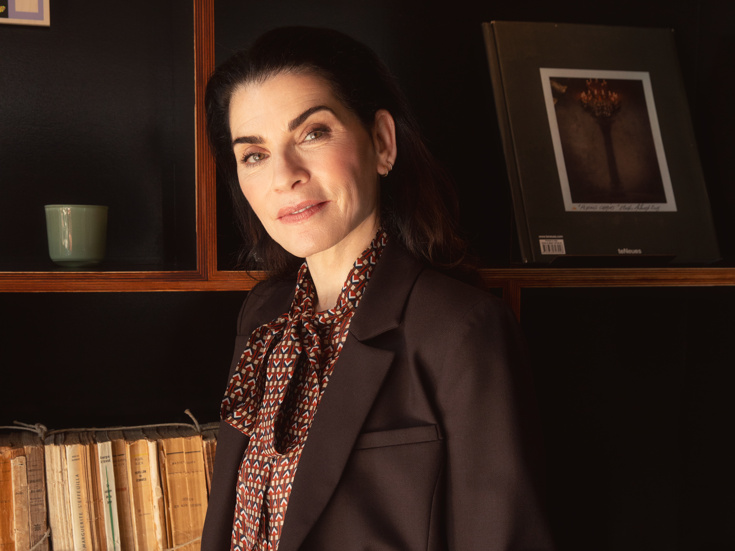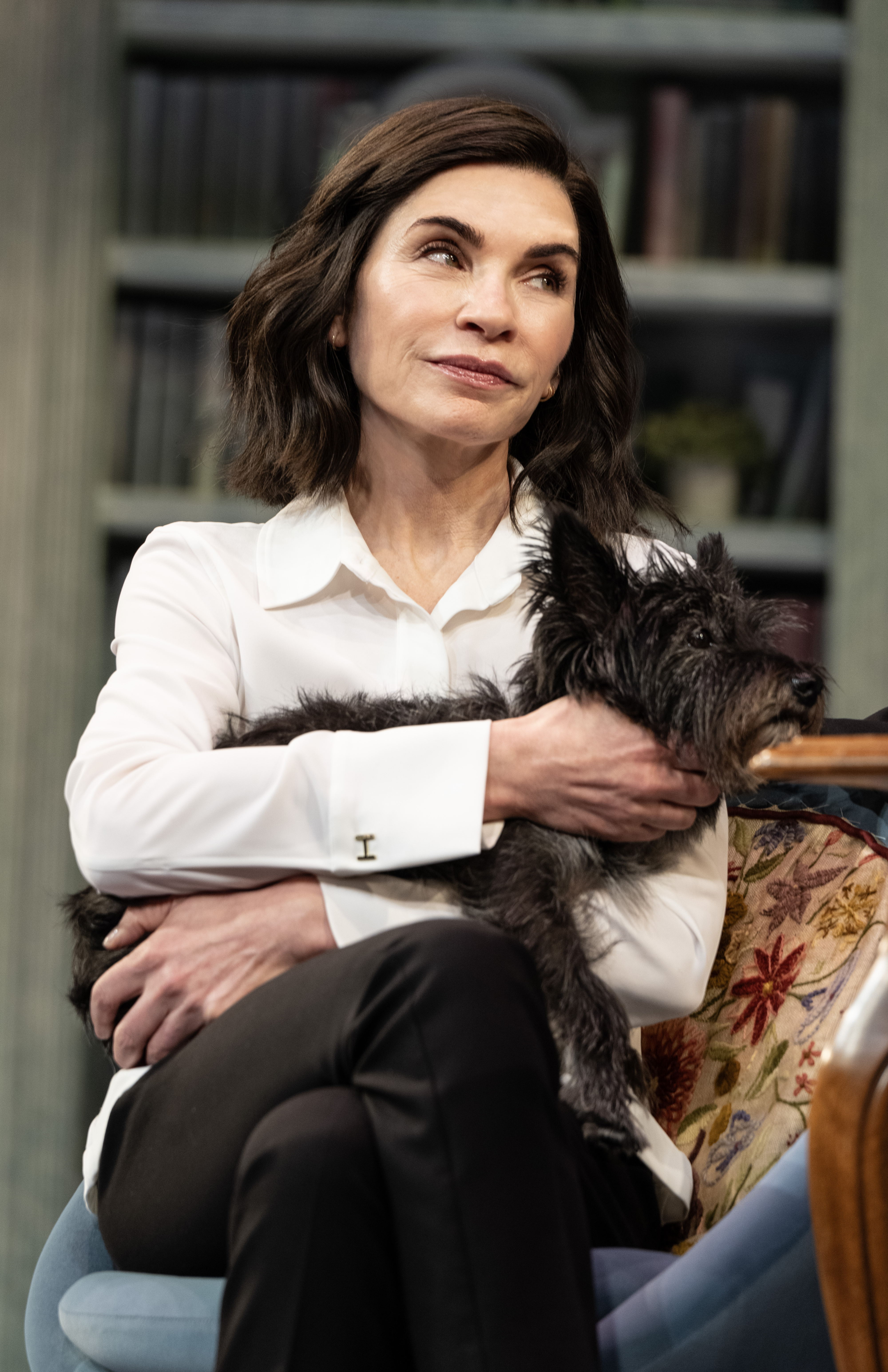For Delia Ephron's Left on Tenth, Julianna Margulies Was Willing to Give Up Her Weekends

(Photo by Sergio Villarini for Broadway.com)
Julianna Margulies is back on Broadway for the first time in nearly 20 years in Delia Ephron’s autobiographical play Left on Tenth. But before she said yes to playing the famed screenwriter and essayist on stage, her 16-year-old son warned her about the theater. “He said, ‘Mom, you can’t do a play,’” Margulies related to Tamsen Fadal on The Broadway Show. “I said, ‘Why is that?’ And he goes, ‘Because you can’t do a take two if you mess up.’”
When you consider that Margulies spent her son’s formative years filming 156 episodes of The Good Wife, you can understand the show of concern. There’s also no separating her from ER’s nurse manager Carol Hathaway, who she played for another 135 episodes from 1994 to 2000. She’s a creature of television—but it’s made the immediacy of the stage a rare thrill: “Honey,” she replied to her apprehensive son, “that’s the beauty of theater.”

(Photo: Joan Marcus)
In fact, her biggest worry about signing on to a play was losing her weekends. Her husband is an attorney (or in Margulies’ words, “he has a real job”), and with her son in his last two years at home, she protects every opportunity for family time. “Plays would come and go, but it's not enough for me to sacrifice the weekends with my family,” she said. “And then when this dropped into my lap…”
Left on Tenth, a play about second chances at both life and love, contemplates the Yiddish term “bashert.” Ephron’s late-in-life romance with her now-husband Peter Rutter (played by Peter Gallagher) after her first husband’s death has that essence of meant-to-be-ness, and the details of Margulies’ journey to Ephron’s play feel similarly fated. “We had sort of a meet-cute moment when our dogs were sniffing each other on Tenth Street,” said the actress, recounting a mid-Covid run-in with a masked neighbor who complimented her recently published autobiography Sunshine Girl. The mystery woman turned out to be Delia Ephron, who said to Margulies, “I actually have a memoir coming out. Can I drop it off with your doorman?" Three years and a blossoming friendship later, “She emailed me and said, ‘I wrote my memoir into a play. I would love it if you would play me.”
Margulies resisted the urge to jump at it. “I said, ‘Delia, I love you so much, and this play is so important, but let's do a reading of it first to make sure I'm the girl for you.’” Ephron’s story and the play she turned it into left a lasting impression on Margulies. “I felt so passionate about her memoir when I read it. She was so raw and vulnerable and truthful.” Because of that, she felt more protective of the property than her own claim to the role.
“This has to be done right,” she said. “It's such an important story from so many different perspectives.” Half romantic romp, half medical drama (Susan Stroman directs), the play depicts harrowing scenes of Ephron’s near-fatal battle with leukemia. “We have so many transplant patients every night,” said Margulies. “We have doctors, we have surgeons. The Weill Cornell Medical Center has bought out an entire evening.”

(Photo: Joan Marcus)
From all sides, Margulies sees the play as a beacon of hope—for anyone fighting an uphill medical battle, or for anyone searching for second, third or fourth loves. She sees the weight of that responsibility every day when she goes to the stage door and greets throngs of transplant patients, transplant nurses, doctors, surviving family members and the like. “They all want to meet Delia,” she said (Ephron has been too shy to join her stars at the stage door but Margulies has taken to passing along many an email address).
It's that element of personal connection that sets theater apart from the rest, and that Margulies says she’s “missed so much about acting.” It’s a perilous tightrope walk with no take two, but—as Ephron hopes her life story bears out—there’s always another chance tomorrow. “I come home exhausted at the end of the day,” said Margulies. “And then I wake up in the morning and I can't wait to get back to work.”
Watch the Broadway Show segment below.


